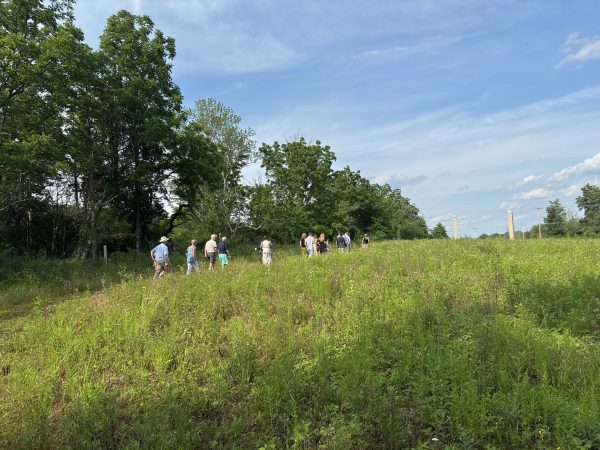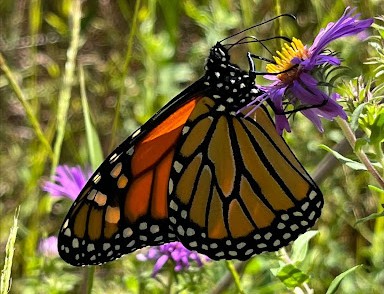The monarchs need our help, and you can help by planting milkweed and other wildflowers that provide the necessary food and nectar for these species.

Monarchs Are Under Threat
The monarch butterfly population has decreased by 90% in the past 20 years! This beautiful pollinator is now at risk of endangered status under the Endangered Species Act according to the United States Fish and Wildlife Service.
The monarch butterfly is a beautiful species that undergoes an incredible migration, travelling over one thousand miles from North America to Mexico in order to go through a hibernate-like state called diapause.
Pollinators rely on diverse plant communities in their native habitat which often consists of meadow plant species. For future generations to survive, monarchs require species of milkweed to act as their larval host plant.
Due to urbanization and the agricultural transformation of pollinator meadows into monoculture fields, milkweeds and these other crucial plants have been completely eradicated in certain areas of the continent. It is important to understand why saving monarch butterflies and pollinator plants is vital to the preservation of natural ecosystems, and how we can all contribute.

Milkweed to the Rescue
Milkweeds act as host plants to monarch butterflies. They lay their eggs only on milkweed plants because milkweed is the only food the caterpillars can eat. Without the presence of milkweed, monarch caterpillars have no food source and the population suffers.
While monarchs rely on milkweeds to support their larval stage, as adults they also rely on having abundant nectar sources from other flowering plants to provide them with energy.

Monarchs can travel 50-100 miles a day, exerting significant energy in the process. The butterflies must have enough sources of nectar to frequently replenish this energy loss.
Milkweeds are an important nutrient source to bees as well as other butterfly species. They have conspicuous flowers during the summer months that can add a pop of color to native plant gardens. There are milkweed species that thrive in many different habitats but many prefer full sun with moist soil and can be found in pastures, croplands, and natural areas such as prairies.
Pollination allows for the formation of fruits and seeds that are crucial to the sexual reproduction of plants. Without pollination, genetic diversity is reduced, making plants less resilient to disease and environmental changes.

Bees and Pollination
While adult monarchs’ migration habits allow them to transfer pollen between a large range of flowering plants that are widely dispersed, bees pollinate within a smaller range and visit flowers more frequently.
Bees have specialized hairs that catch pollen grains, making them more efficient pollinators. Native bee populations often rely on a few plant species for foraging, overwintering, and nesting.
Providing them with proper habitat is crucial to their survival and the survival of other animals such as bird species that rely on bee pollination for the production of fruit that they forage on. One way we can support monarch and other pollinator populations is by planting native flowering plants, offering them diverse sources of nectar.

Solutions Are in Our Field(s)
At Heritage Conservancy, we strive to protect the natural habitat of such incredible pollinators. To limit the impacts of threats like urban development, we establish nature preserves and partake in active conservation stewardship to promote native biodiversity and sustainable ecosystems for both current and future generations to benefit from.
In addition to maintaining land that currently provides vital habitat to pollinators, we have several ongoing projects on our protected land to install new pollinator habitat and increase the ecological value of open space.
One such project is on our largest property, Lindsay Farm, where we are converting a 15-acre agricultural field to a pollinator meadow by seeding the land with wildflowers, native grasses, and other native plants which the pollinators in the area are adapted to utilize to their full ecological potential.

How You Can Help Save the Monarchs
By purchasing and planting milkweed and other native wildflowers, you are increasing the available habitat and food sources for monarchs and other pollinators at your own home. Look for native plants like the purple coneflower, brown eyed susan, golden alexanders, and more flowering plants that will both liven your garden and support pollinators.
The monarchs need our help to survive, and by purchasing and planting milkweed and other wildflowers, you can offer essential food and nectar for these species to help ensure its survival for years to come.
This article was written by Heritage Conservancy’s 2025 conservation interns, whose summer work plays a vital part in supporting local pollinators.
